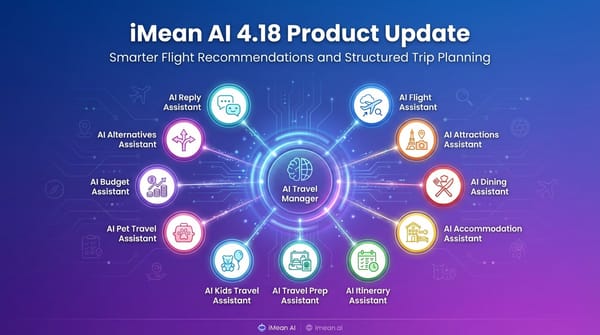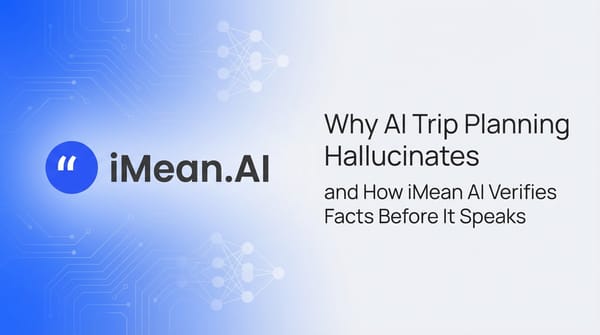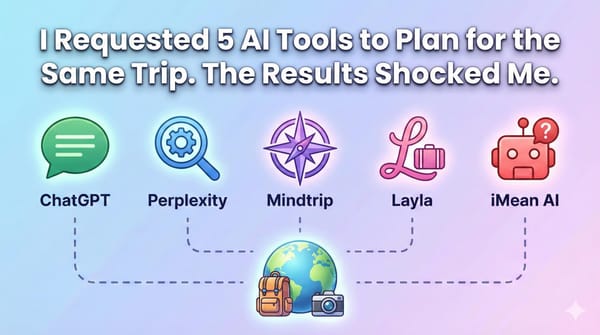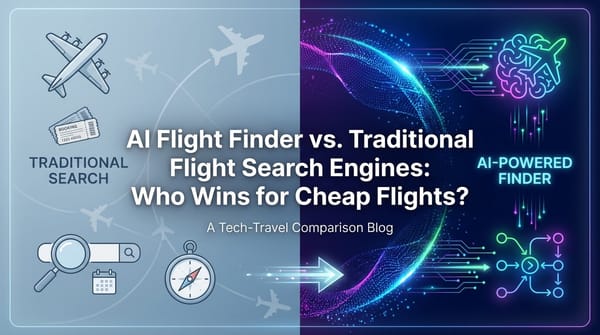Traveling through multiple cities is tiring, and hotel planning matters more than most people think. This piece lays out the common pain points you hit on the road, explains the simple logic behind an AI hotel finder called iMean AI that actually helps and summarizes what happened when it tested on real itineraries. If you want short walks to stations, fast coffee, luggage storage, dependable Wi‑Fi, and less stress between legs , read on.
Pain points: Why hotels turn a trip into work
There’s a specific fatigue that hits when you move from city to city:) You step off a long train, your phone is low, you’re carrying bags, and you want a place that feels like home for a few hours. Instead you get long walks, slow check‑ins, spotty Wi‑Fi, or a room that’s nowhere near the station. Small things add up fast.
The Common problems I see on multi‑city trips:
- Check‑in timing: You arrive early or late and rooms aren’t ready or staff is gone. That ruins energy.
- Transit friction: Hotels too far from stations or airports force taxi rides or long walks with luggage.
- Noise and rest: A good view doesn’t help if the street is loud at night and you can’t sleep.
- Basics missing: No luggage storage, weak Wi‑Fi, no early coffee, no laundry — all tiny setbacks that snowball.
- Misaligned priorities: You pick based on stars or price, not how the hotel fits your day’s rhythm.
Most booking sites don’t score for these things. They show photos and reviews, but they don’t answer: will this hotel get me to the train on time? Can I get coffee at 6:30? Can I drop my bag and go? Those are the features that keep you moving and rested.

What a smart hotel finder should do
A good AI tool treats hotel selection like a systems problem, not just a catalog problem. The idea is to match hotel capabilities to the travel rhythm of each leg. That’s what iMean AI hotel finder does, and why it’s worth trying to use .
Key signals the AI should evaluate:
- Check‑in and access: early check‑in, late arrivals, 24‑hour reception, luggage storage. These are priority features when your schedule is off hours.
- Transit connectivity: walking time to stations, bus stops, airport shuttles, and likely taxi availability. A ten‑minute walk beats a 30‑minute hop when you’re tired.
- Noise and neighborhood vibe: is the area party‑heavy or quiet at night? Is it safe to walk with baggage at 6 a.m.?
- Essentials: Wi‑Fi strength, charging points, in‑room desks, laundry, breakfast hours, and whether the hotel offers quick coffee.
- Practical policies: pet‑friendly, flexible cancellation, holds for late arrivals, and luggage storage windows.
- Cost vs. convenience tradeoffs: sometimes spending a little more saves hours and stress, which is worth it.
How iMean AI works in practice
Let’s say you’re flying from New York to Lisbon, then hitting Seville and ending in Paris. Each city presents its own pace, layout, and quirks. In Lisbon, early check-in might matter more than breakfast options. In Seville, walkability might be key. And in Paris, being near a metro stop could save your trip.
A good hotel finding tool should account for all these details, and that’s what iMean is built to do. Instead of flipping between a dozen tabs comparing prices and maps, you input your destination, travel dates, and basic preferences. The platform’s interface feels like texting a travel-savvy friend: you say what you need, and it gets to work.
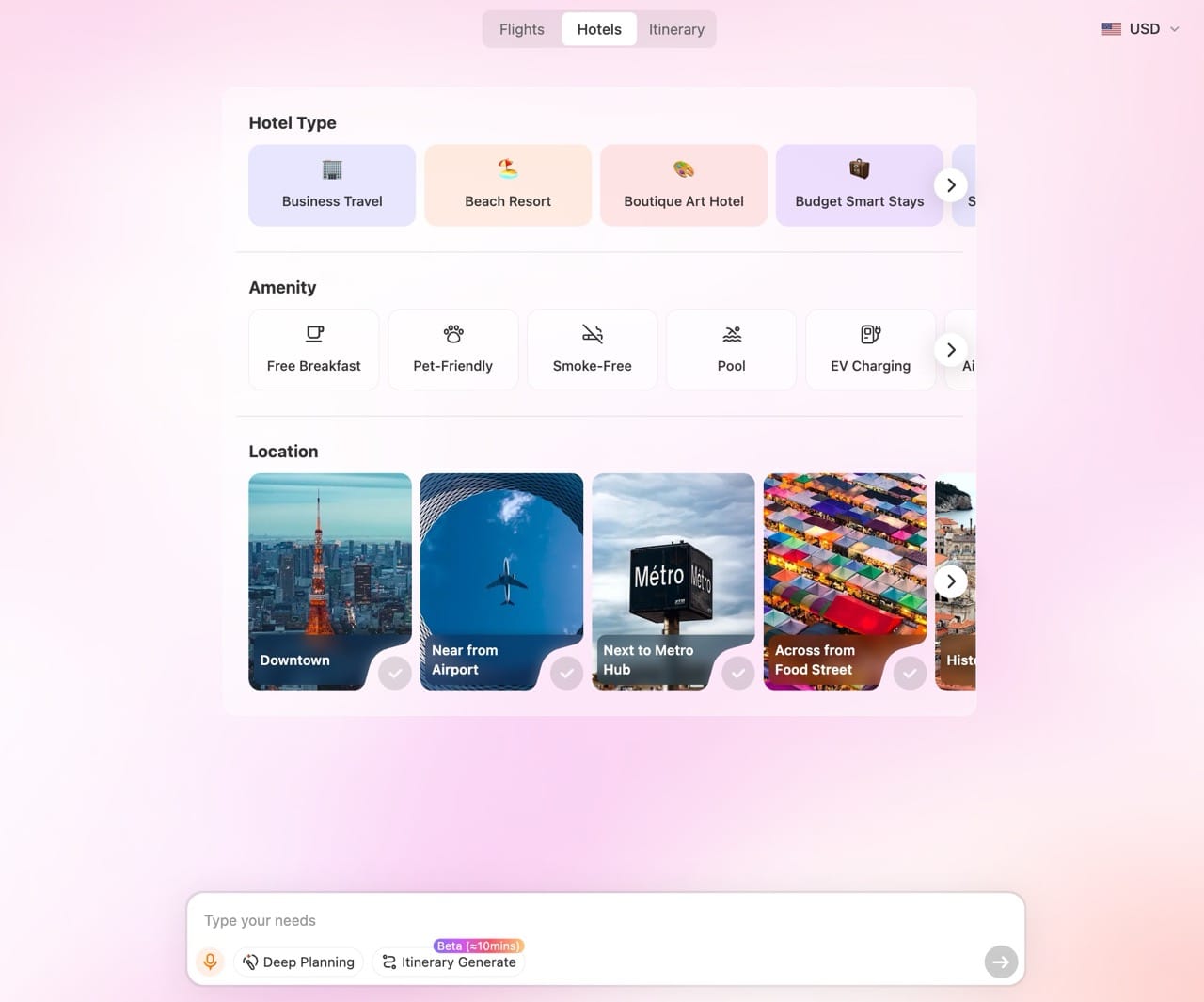
Beyond Stars and Reviews
Star ratings are helpful. So are reviews. But they rarely capture what truly matters in a multi-city context: how a hotel functions within your broader itinerary. For example, in Milan, I once stayed at a gorgeous boutique hotel—rooftop bar, plush linens, impeccable coffee. But it was a 25-minute walk from the train station, and I had an early train to Florence. That extra walk, at 6 a.m. with luggage, turned a perfect stay into a stress fest. This is where a hotel finder AI solution shines.
By layering logistics over aesthetic and cost, iMean AI identifies hotels that not only match your style and budget, but also optimize for transitions: a quick cab ride, walkable neighborhoods, or even pet-friendly policies if you’re traveling with a dog.
The Role of Contextual Filtering
Let’s go back to our Lisbon-Seville-Paris scenario. In Lisbon, you’re landing mid-morning and need to freshen up before heading to the coast. iMean AI surfaces hotels with early check-in and luggage storage without extra clicking required. In Seville, it filters by proximity to the old town but avoids areas that get too noisy at night. In Paris, it understands that a quick RER B connection to the airport is worth more than a river view.

You could call it a smart AI hotel finder, but it’s really a pattern matcher for human habits. It draws on data, yes, but also on past choices that travelers like you have made.
Wrap-up: Try it on your next trip
Want to stop letting hotels ruin your trip? Try this: pick one upcoming multi‑city leg, list arrival times and three non‑negotiables, and plug them into iMean AI. Ask it to favor convenience over looks, then compare the cheapest option with the AI’s convenience pick. Book the one that saves you the most time and stress then you’ll see the difference on day two of your trip.
Let iMean AI compare hotels across cities and plan your route for comfort, convenience, and better rest.





